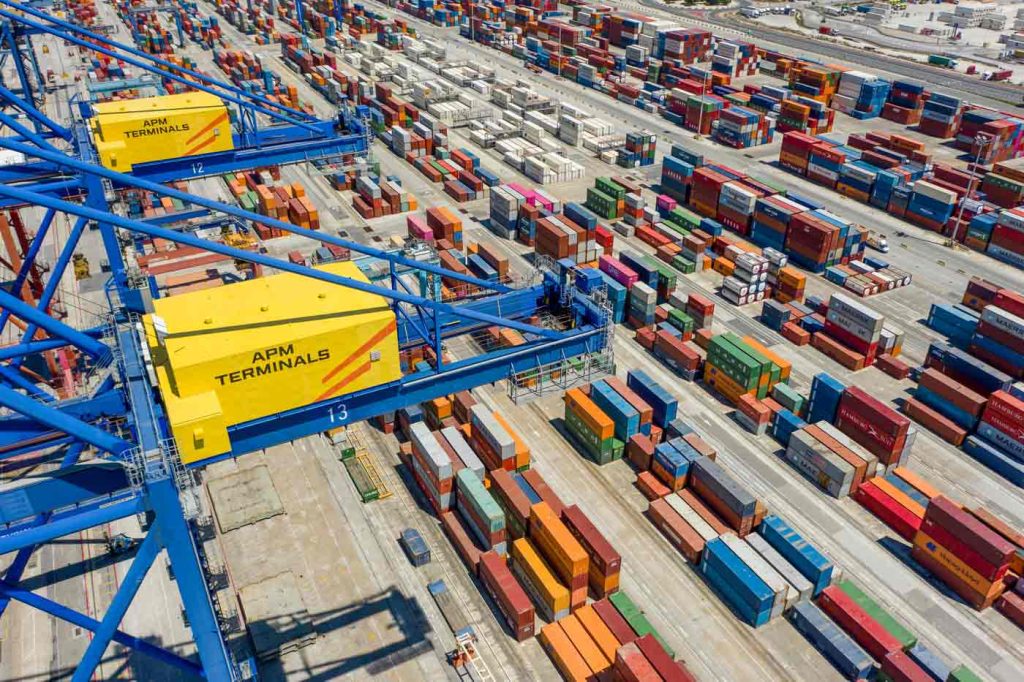In a recent stakeholders meeting hosted by APM Terminals Apapa, the Head of Commercial, Kayode Daniels, addressed the ongoing concern of cargo delays at the ports, clarifying that these delays are not due to the actions of terminal operators. Instead, Daniels emphasized that the root cause lies in inadequate enforcement of existing policies. This gathering, aimed primarily at customers and stakeholders, served to educate attendees about the functioning of the truck electronic call-up system, known as ‘Eto’, which was introduced by the Nigerian Ports Authority and managed by Truck Transit Park Ltd. Daniels reiterated that better comprehension of this process could minimize operational complaints and significantly reduce congestion on crucial access routes to the ports.
Daniel’s observations highlighted a misconception among many that terminal operators such as APM Terminals are the primary culprits behind delays faced by trucks attempting to enter the ports. “When our customers understand how to navigate the system, they can avoid unnecessary delays,” he stated, advocating for a clearer understanding of how enforcement practices are pivotal in ensuring timely access to port facilities. Unfortunately, he noted, truckers sometimes contribute to delays through inefficient parking and dual transactions while waiting for necessary paperwork, which prolongs their stay on access roads. This behavior exacerbates congestion and undermines the system’s intended benefits.
Akonoman, the Head of Operations at Trucks Transit Parks, echoed Daniels’ sentiments by urging truck operators to refrain from soliciting business on access roads. He emphasized that such practices hinder smooth movement in and out of the ports. Akonoman also called upon importers and exporters to utilize the resources offered by TTP, including a website for tracking truck movements, noting the system assigns each truck a unique journey code. This code is essential for monitoring the truck’s progress and operational details, which reassures customers about the efficiency and reliability of the transportation process.
The Eto system, launched by the Nigerian Ports Authority in February 2021, was designed specifically to mitigate the congestion challenges that have historically plagued Nigeria’s busiest ports, including Apapa and Tincan Island. This innovative electronic truck call-up system mandates that truck operators book entry slots in advance, effectively regulating the manageable flow of trucks and enhancing overall port efficiency. The necessity for pre-arranged appointments has proven crucial in addressing the prolonged logjams that have often resulted in increased logistics costs for port users.
Daniel pointed out how the efficient functioning of the Eto system stands to benefit all parties involved in the port ecosystem. By facilitating a more structured approach to truck entry, the system enables a smoother influx of vehicles into terminal operations, which can ultimately help alleviate the frustration experienced by customers and traders alike. Importers and exporters who familiarize themselves with the procedures can contribute significantly to this much-needed organization in traffic flow, thus improving overall port operations.
Ultimately, the commitment from both APM Terminals and Trucks Transit Parks to enhance communication and operational efficiency through initiatives such as the stakeholders meeting and the Eto system reflects a proactive approach to current challenges. By fostering an environment of collaboration and education, there is a potential for significant improvements in the logistical landscape of Nigeria’s ports, creating a more organized and efficient process that serves both the economy and the various stakeholders. The emphasis on understanding the broader implications of policy enforcement and operational processes indicates a move towards creating a sustainable solution that addresses the root causes of port congestion, paving the way for enhanced productivity and smoother supply chain operations.


